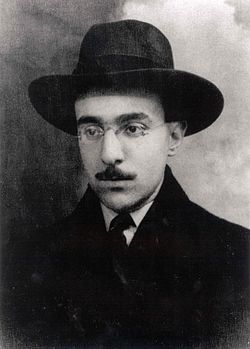Fernando Pessoa Quote
If our life were an eternal standing by the window, if we could remain there forever, like hovering smoke, with the same moment of twilight forever painting the curve of the hills… If we could remain that way for beyond for ever! If at least on this side of the impossible we could thus continue, without committing an action, without our pallid lips sinning another word!Look how it’s getting dark!… The positive quietude of everything fills me with rage, with something that’s a bitterness in the air I breathe. My soul aches… A slow wisp of smoke rises and dissipates in the distance… A restless tedium makes me think no more of you…All so superfluous! We and the world and the mystery of both.
If our life were an eternal standing by the window, if we could remain there forever, like hovering smoke, with the same moment of twilight forever painting the curve of the hills… If we could remain that way for beyond for ever! If at least on this side of the impossible we could thus continue, without committing an action, without our pallid lips sinning another word!Look how it’s getting dark!… The positive quietude of everything fills me with rage, with something that’s a bitterness in the air I breathe. My soul aches… A slow wisp of smoke rises and dissipates in the distance… A restless tedium makes me think no more of you…All so superfluous! We and the world and the mystery of both.
Related Quotes
About Fernando Pessoa
Pessoa was a prolific writer both in his own name and approximately seventy-five other names, of which three stand out: Alberto Caeiro, Álvaro de Campos, and Ricardo Reis. He did not define these as pseudonyms because he felt that this did not capture their true independent intellectual life and instead called them heteronyms, a term he invented. These imaginary figures sometimes held unpopular or extreme views.
